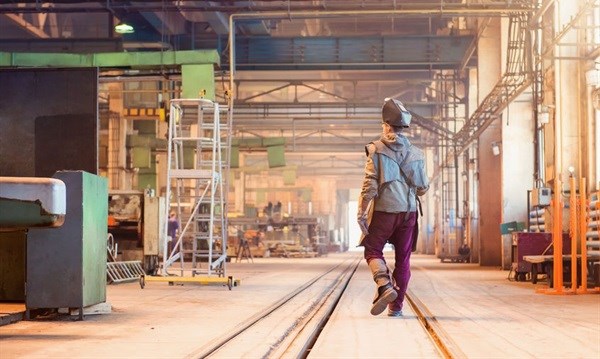Provincial manufacturers and businesses assembled in Durban at the Kwazulu Natal Manufacturing Indaba to explore growth opportunities, discover the latest manufacturing incentives and trends, and seek out opportunities for networking and collaboration.
The annual conference, held at the Durban International Convention Centre (ICC) on 22 August, was specifically designed for industry experts to impart their knowledge and expertise with the objectives of unpacking challenges and exploring solutions for growth across the manufacturing sector.
This year’s event reflected on key topical issues pertinent to both small and large manufacturers in the province, namely:
1. Manufacturing the future
Development of strategies to embrace opportunities and manage threats with respect to the 4th Industrial Revolution were unpacked. The event’s panel of industry experts communicated how manufacturers can keep abreast of change by realising the relevance of Industry 4.0 to their businesses and investing in innovative measures to reinforce a competitive advantage and boost profitability through the digitalisation of manufacturing operations.
KwaZulu-Natal Economic Development, Tourism and Environmental Affairs MEC, Sihle Zikalala, spoke at the Indaba regarding how changes in trade, technology, organisation of production and product demand have all affected the progress of South African manufacturing operations.
“We are living through the Fourth Industrial Revolution, a wave of new technologies that are emerging and affecting our lives in many new ways, creating entirely new capabilities for people and machines. Global trends show an increase in disruptive markets that are changing traditional markets as we have known them,” Zikalala said.
2. Maximising the market for manufacturer
A focused session explained how industry players can thrive by maximising the manufacturing market. This can be achieved through implementing various tools available to support industrialists as well as initiatives that government has developed to assist manufacturing businesses in the forms of government grant incentives, tax breaks, investment opportunities and other financing solutions.
Business candidates are required to meet several stipulations prior to acquiring access to these governmental support schemes and the Indaba proved an invaluable platform in disclosing these conditions to potential applicants.
3. Access to new markets for manufacturers
The thought-provoking session unveiled the latest general economic trends influencing industrial players, namely new geographic markets. This entailed exploring the latest technologies and innovations to provide and expand new market sectors to sell to, as well as exporting products into other African countries.
The event showcased the region’s commitment to open innovation focused on societal challenges with support for projects, infrastructure and nurturing entrepreneurs. A complementary approach to technology and innovation in South Africa’s manufacturing sector was proven to help develop an ecosystem focused on boosting competitiveness along with the wellbeing of society.
Zikalala emphasised the need to commit to fostering growth of the economy’s middle-income population, stating that in most emerging markets like India, China and Brazil, development in the middle-income population has continued to contribute significantly to economic growth.
Stavros Nicolaou, a senior executive for Aspen Pharmacare was also one of the key speakers at the conference. Nicolaou highlighted that manufacturing operations should be at the crux of South Africa's economic policy. He added that both manufacturing and industrialisation play a critical role in the investment campaign that President Cyril Ramaphosa has personally initiated. The Aspen Pharmacare executive also maintained that there needs to be a societal change in South Africa in which we buy locally. "Let's export products and keep the jobs local," said Nicolaou.
Supporting the conference, the Indaba hosted 32 exhibiting companies with the support of Trade Invest Kwazulu-Natal. Complimenting their participation was a formal Business Matchmaking Programme whereby 180 business meetings were hosted with the 242 delegates in attendance at the one-day event, connecting the exhibitors, to the delegates and speakers in attendance as well as one another.








































